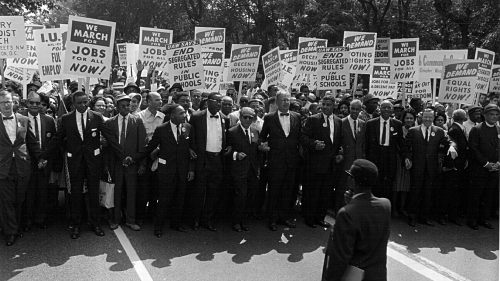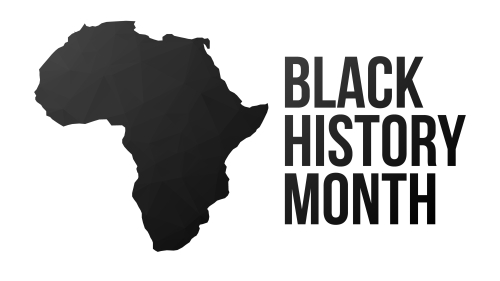Facing Famine in Africa
The United Nations Food and Agricultural Organization (FAO) Monday released a report revealing that some 10 million people in Sub-Saharan Africa require emergency food assistance. The FAO’s annual report on the "Food Supply Situation and Crop Prospects in Sub-Saharan Africa," detailed a list of 16 of the most severely affected countries. In Somalia alone, the report warned, one million people need emergency assistance while 400,000 are in danger of starvation. The current lingering "and even growing" destitution of much of Africa, contrasted as it is with a recent increase in economic prosperity and living standards in most Western countries, raises questions as to the reasons behind such an abominable and malignant inequity.
The humanitarian crisis in Africa is well documented and has been for some years. Despite a brief period of optimism following general independence in the 1960s from European colonial domination, Africa has been plagued by a series of droughts, famines, widespread diseases often curable in Western countries, corporate and neo-colonialist exploitation schemes, military coups and ethnic and religious strife. Often these problems are inter-related and have played on each other to further devastate African communities. But despite the outcry over continued turmoil in Africa, which has perhaps saturated the Western consciousness and become a mundane, accepted fact, the recent FAO report piques the conscience by revealing the dire circumstances of the victims of such multifarious turmoil.
The report says that "exceptional food emergencies" threaten large percentages of the populations in Mauritania, Sierra Leone, Liberia, Guinea-Bissau, Congo, Democratic Republic of Congo (DRC), Angola, Burundi, Rwanda, Uganda, Tanzania, Kenya, Eritrea, Ethiopia, Sudan and Somalia. The problem is exacerbated by below-average harvests in many African countries that have traditionally been able to export food, such as South Africa, Namibia, Botswana and Zimbabwe. According to the report, reasons for the food emergencies vary from place to place and range from crop failure to war to national and local debt. Often the problem of low crop yields has been compounded by large numbers of refugees and internally displaced persons (IDPs). IDPs number as many as 385,000 in Ethiopia, 660,000 in DRC and one million in Angola, according to the report.
The food crisis has been substantiated by earlier reports. A 1998 FAO State of Food and Agriculture (SOFA) report said that the number of undernourished people in the world had grown in the 1990s, with latest estimates for the 1994-1996 period indicating that 828 million people suffered from undernourishment, most of them in Africa. The World Food Programme (WFP) concurs with this figure in a recent press release, saying one in seven people worldwide are affected by hunger.
While problems such as drought and disease cannot be avoided, the impression given by the 1999 FAO report is that many of the food shortages in Africa are the direct result of human problems. War and instability destroy crops and take people away from the field through army service, death and displacement. Some areas are so torn apart by civil war that international relief agencies are unable to effectively operate for fear for their lives, according to the report. Aid workers and members of international organizations have in the past been subject to hostage taking, murder, robbery and landmines.
But lest one think that Africans are unconcerned about those avoidable problems which are devastating their people, it seems clear that Africans as a whole lack the means to ensure lasting peace on the continent despite their best intentions. While the Nigerian-led intervention in Sierra Leone to reinstate that country’s democratically elected president demonstrates the willingness and ability of African peacekeepers to solve the problems on their own continent, African calls for peace and stability are often hollow due to lack of financial means. Aside from the substantial domestic investment required to build peace, stability and democracy , an investment which is often undermined by payments to foreign, Western debtors, African international organizations such as the Organization of African Unity (OAU) are unable to back up their rhetoric with action. Even the Nigerian-led ECOMOG, a West-African intervention force, has been financially challenged by its continued presence in Sierra Leone. A July 16 WFP analysis of the annual OAU conference held in Algeria said the OAU has been able to negotiate an end to a few conflicts based on political mediation, but in general "lacks the power and mechanisms needed to bring peace to the continent's troubled spots," despite the organization’s best intentions to the bring stability to African nations.
Western nations have long justified their intervention in foreign countries with humanitarian concerns and their economic success with the political stability of their own regimes. If Western goals truly are to promote stability and democracy around the world, then immediate steps are needed to avert a decades-old humanitarian disaster in Africa. If Western nations are not willing to become directly involved to end strife in Africa as they did recently in Kosova, then they should at least support the peace-keeping efforts of native organizations such as the OAU, which is perhaps a more respectful choice than the first.
Another obvious option to help end the humanitarian disaster is to completely forgive the debts of African nations. But a recent G-8 conference in Germany demonstrated that Western and industrialized nations are unwilling to make any substantial concessions to forgive poverty stricken countries their debts. The conference decided to allow a $50 billion total remittance for loan repayment among the poorest countries, far short of the proposed $200 billion.
Africans are assuredly concerned about the crises which threaten the continent, but their impotence due to a lack of financial means necessitates immediate action on the part of those who do have the financial means. Despite the worthiness of the work of Western-based humanitarian organizations, the horrifying reports such as that recently released by the FAO are of little consequence if those with the means do not act to avert certain disaster.
Zakariya Wright is a staff writer at iviews.com

















